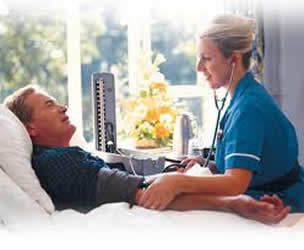 One of the many ways that heart disease manifests itself is in the form of a myocardial infarction, which is also referred to as a heart attack. The heart is a muscle and in order to pump consistently and keep the rest of your body functioning, it must have blood and oxygen. A heart attack occurs when a portion of your heart is cut off from the blood and oxygen flow of the arteries which is generally the result of cholesterol buildup forming a blockage in your arteries. That section of the heart begins to become damaged because of the lack of blood and oxygen.
One of the many ways that heart disease manifests itself is in the form of a myocardial infarction, which is also referred to as a heart attack. The heart is a muscle and in order to pump consistently and keep the rest of your body functioning, it must have blood and oxygen. A heart attack occurs when a portion of your heart is cut off from the blood and oxygen flow of the arteries which is generally the result of cholesterol buildup forming a blockage in your arteries. That section of the heart begins to become damaged because of the lack of blood and oxygen.
Heart attacks can cause “electrical” damage to your heart muscle, causing it to have an irregular heartbeat, which affects your ability to live and have energy, and can reduce the ejection fraction of your heart meaning it can decrease the amount of blood and oxygen the heart releases into your bloodstream.
The longer a heart attack or heart disease goes untreated, the more potential long term damage you face. That’s why it is so important to understand the many possible heart attack symptoms you could encounter. The following section will give you an idea of some of the most common heart attack symptoms you could encounter. If you are concerned about your risk of heart attack, you may want to get a more definitive list from your doctor.
Common Heart Attack Symptoms
Heart attack symptoms usually last for long periods of time and do not respond to ibuprofen based treatment. Since aspirin thins the blood, heart attack symptoms could decrease after taking some. It is a good idea to have aspirin handy in the event of a heart attack.
Here are some of the common symptoms of a heart attack:
1.Pressure or fullness of the chest: Many people say that this feels like an elephant sitting on your chest.
2.Difficulty breathing: This could manifest as shortness of breath or stabbing pain while breathing.
3.Tingling left arm: The tingling may also be or become painful.
4.Pain in the chest, arms, neck and jaw: Heart attack pain is not predictable and is not restricted to just your chest.
5.Irregular heartbeat: Because a heart attack is caused by a lack of blood and oxygen flow to and from the heart, and because of the anxiety involved in a heart attack, you may find that your heart beat becomes irregular.
6.Dizziness and sweating: As your heart starts to shut down and you become more anxious, you may notice excessive sweating, clamminess and/ or dizziness.
If you have had off and on any one or more of the above heart attack symptoms you should make an appointment with your primary care physician. He or she can run the appropriate tests and find out if there is something going on with your heart and decide whether or not to schedule a stress test or heart catheterization. If you are currently feeling some of the above symptoms, it is important that you get help immediately. While the above symptoms can sometimes be ascribed to harmless conditions like heart burn, there is no reason for you to take a chance with your health and just assume that the reason behind your symptoms is benign. If you think you may be suffering a heart attack, please do not attempt to drive yourself to the hospital. If you do, not only could you be endangering your own life, but you could endanger the lives of everyone on the road. An ambulance is your best and safest form of transportation since they can begin to treat your symptoms immediately.



